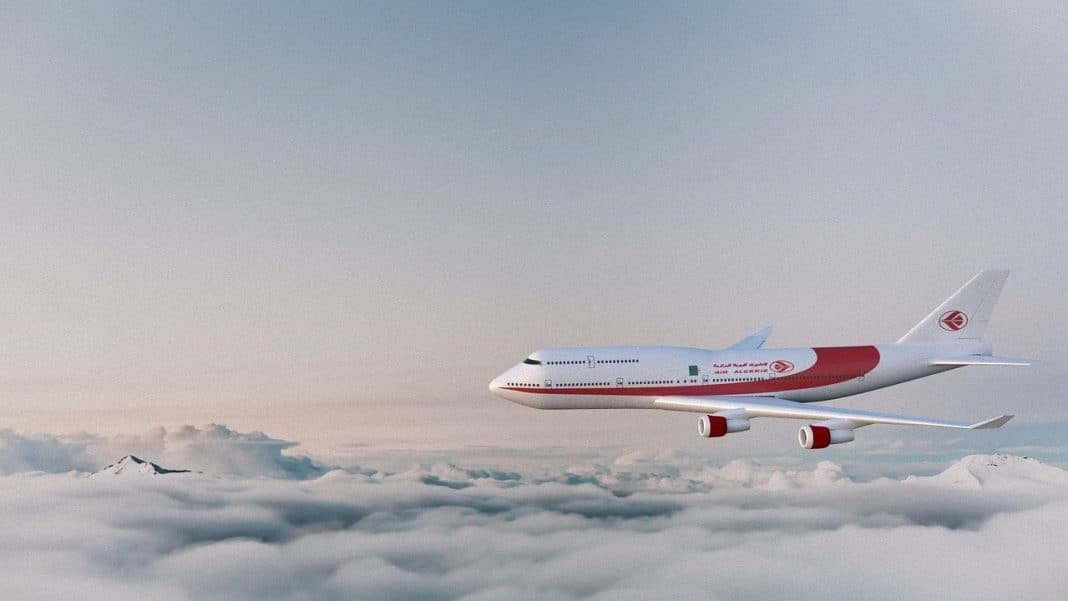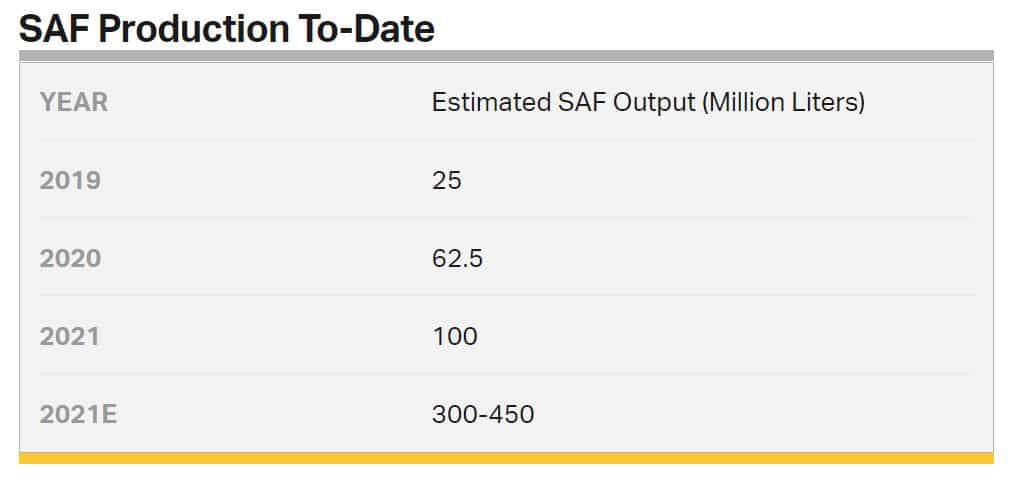Carbon offsets are one of the ways to help airlines in their race to net zero emissions. But recently, two major airlines – JetBlue and EasyJet – opted to stop carbon offsetting and focus on other ways to lower their carbon footprint by ramping up their use of sustainable aviation fuel (SAF).
With few other technologies commercially available, most airlines chose carbon offsets for their net zero strategies. According to S&P estimates, airlines will rely on offsets to decarbonize about 97% of their operations by 2025 but that will go down to 8% only by 2050.
Low carbon technologies come into play and SAF shows a promising trend.
Cutting Airlines Emissions with SAF
Some airlines now see SAF as a way to ramp up their decarbonization goals. Current estimates by the International Air Transport Association (IATA) show that SAF will account for about 65% of mitigation needed by the aviation sector.
The IATA estimated that total SAF production will reach 450 million liters in 2022. That’s over a 3x increase over the 2021 production of 100 million liters.
Here’s the growth of SAF production to date as per the IATA data.
To date, over 450,000 commercial flights have been operated using SAF. And the growing number of airlines signing agreements with SAF producers sends a clear market signal that this low-carbon fuel is in demand. Two recent examples are JetBlue and EasyJet.
JetBlue Ramps Up SAF Uptake
JetBlue Airways, a major American low-cost airline, pledged to reach net zero by 2040 using six methods including SAF and a massive carbon offsetting program. The airline first used carbon offsets in 2008, using the proceeds to support projects like wind power development, methane gas capture at landfills, and reforestation.
But it recently announced that it will quit buying carbon offsets for its domestic flights in 2023 and decided to focus on using SAF instead.
JetBlue considers carbon offsets as a powerful tool that enables them to tackle emissions immediately when developing a longer-term reduction plan including SAF. The airline’s director of sustainability and ESG Sara Bogdan said in an email that:
“The time is now to maximize investment into the space [green fuel] and accelerate our uptake of SAF…”
The US carrier revealed the shift as part of its wider commitment to cutting GHG emissions from jet fuel by 50% per revenue ton kilometer by 2035 from 2019 levels. This reduction is its most aggressive near-term target, the airline said.
Yet, JetBlue is not giving up on carbon offsets completely. It will continue to buy a small quantity of high-integrity carbon credits for flying from 2024 and to offset emissions from expanding international flights. The airline will work with experts to deal with issues on carbon offsets and assess which bring the biggest benefit.
Bogdan further added that “we do see an opportunity for greater transparency from the carbon credit market.”
The airlines has been using SAF for some flights since 2020 under supply agreements with Neste and World Energy. It has also signed deals with three more SAF producers with the plans to convert 10% of its fuel to SAF by 2030.
The US carrier joins Swiss EasyJet, which in September said will ditch carbon offsetting by the end of this year. It will opt to use SAF, too, as part of its roadmap to net zero emissions by 2050.
EasyJet Shifts to SAF
EasyJet was one of the first major airlines to offset all of its emissions when it introduced the program in 2019. The company said it had offset about 8.7 million tonnes of emissions since then.
But the carrier decided to use its money to invest in new technologies from fuel-efficient aircraft to switching to greener fuels like SAF. This shift will reduce its emissions by 78% by 2050, while the 22% cut by using carbon capture technology.
The Swiss carrier’s CEO Johan Lundgren remarked:
“Our carbon offsetting programme has been the right thing to do . . . [but] you need to deal with your own operations, you cannot rely on out-of-sector initiatives. It makes much more sense to invest into direct initiatives that reduce our own carbon intensity.”
But the airline said it will still allow customers to pay to voluntarily offset their own emissions.
According to the Science Based Targets initiative (SBTi), offsets can only be used to compensate for a small portion of residual emissions that can’t be dealt with in the long term.
EasyJet’s and JetBlue’s shift to SAF contrasts with some airlines.
US carrier Delta Air Lines, for instance, spent $137 million to buy and use 27 million offsets last year. While British Airways claims that all its domestic UK flights are “carbon neutral” by offsets that cover these journeys.
As they race to net zero, airlines are using both carbon credits to offset their emissions and SAF to cut pollution directly at the core.


